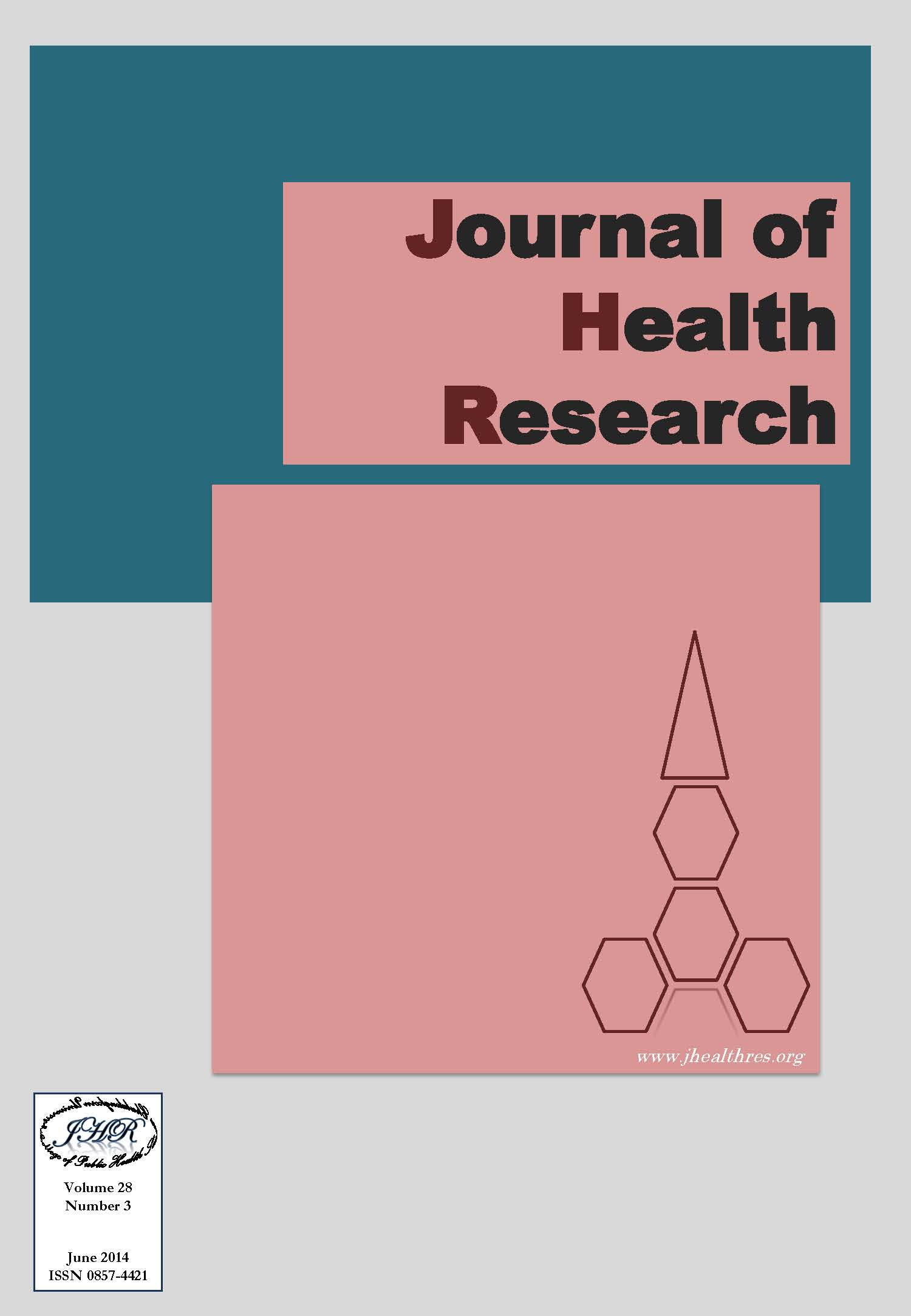Symptom Clusters in Thai Patients with Advanced Lung Cancer
Keywords:
Advanced lung cancer, Symptom clusters, Factor analysis, Thai patientsAbstract
The purpose of this study was to explore the characteristics of symptoms and to explore the presence and composition of symptom clusters in Thai patients with advanced lung cancer based on the “Theory of Unpleasant Symptoms”. One hundred and sixty five patients with advanced lung cancer were purposely selected from outpatient and inpatient oncology units at two tertiary hospitals in Bangkok to complete a demographic questionnaire and symptom record based on the Memorial Symptom Assessment Scale (MSAS). The results found that patients with advanced lung cancer stages IIIA, IIIB and IV, aged between 35 and 84 years, with a mean age of 62.4 years, accompanied by multiple symptoms, and averaged 14.65 symptoms. Coughing was the most common symptom reported, lack of appetite was reported to be most frequently occurring symptom. The symptom of pain was reported to be the most severe as well as the most distressful. Using principal component analysis, with varimax rotation, seven symptom clusters were identified and labeled as body image symptom cluster, neuropsychological symptom cluster, sleep alteration symptom cluster, digestive impairment symptom cluster, dermatologic and dizziness symptom cluster, bowel-emotional dysfunction symptom cluster, and pain related discomfort symptom cluster. Because symptoms usually occur together, identifying symptom clusters may lead to an investigation and management of several symptoms within the cluster. The results intimately suggest nursing intervention on symptom management for better quality of life in Thai patients with advanced lung cancer.







